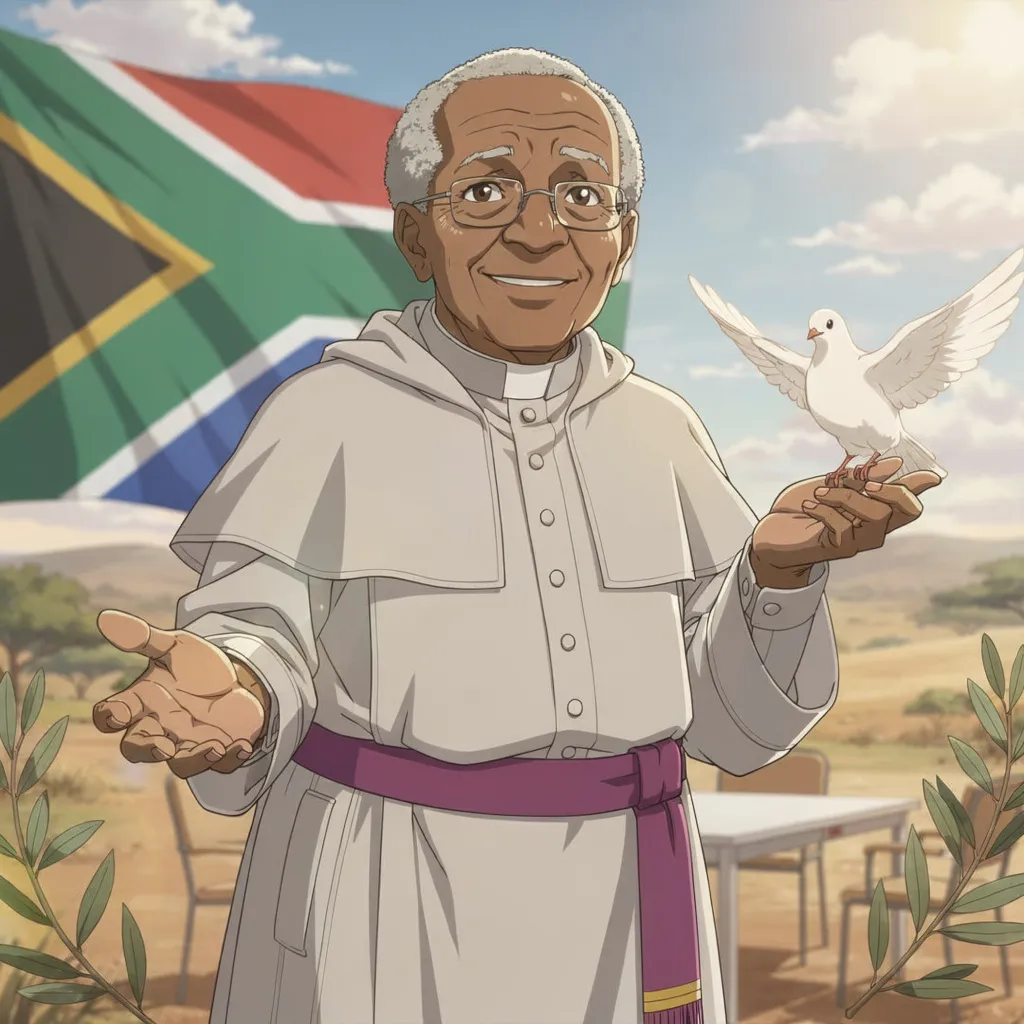
Desmond Tutu
1931–2021
Helping bring peace and fairness to South Africa through kindness, courage, and forgiveness
Early Life
Desmond Tutu was born in 1931 in Klerksdorp, South Africa. As a child, he loved learning and dreamed of becoming a doctor, but his family did not have much money and he became ill with tuberculosis. He became a teacher instead and worked hard to help young people learn.
When Desmond was young, South Africa had unfair laws called apartheid. These laws treated people differently because of their skin color. Desmond saw how this hurt families and friends, and he wanted to help make things better.
Finding His Voice
Desmond Tutu decided to become a priest, which is a religious leader who helps guide people. He studied hard and later became an Anglican priest. As he grew older, he realized his voice could help many people, not just in church.
He spoke out peacefully against unfair laws. Instead of using anger, Desmond used words, kindness, and hope. Many people listened to him because he believed strongly in love and fairness.
Big Achievements
In 1984, Desmond Tutu won the Nobel Peace Prize. This special award is given to people who help make the world more peaceful. He received it for standing up against apartheid without using violence.
After apartheid began to end, Desmond helped lead the Truth and Reconciliation Commission. This group helped people talk honestly about the past and learn how to forgive and move forward together.
A Leader with a Big Smile
Desmond Tutu later became the Archbishop of Cape Town, an important church leader. He was known for his warm smile and joyful laugh. Even when talking about serious problems, he believed joy was important.
He often said that everyone belongs to one human family. He taught that forgiveness is powerful and can heal hearts and communities.
Legacy
Desmond Tutu passed away in 2021, but his message still lives on. He showed the world that courage, kindness, and hope can change history.
Many people remember him as a hero who chose love over hate. His life teaches kids and adults that standing up for what is right can make the world a better place.
🎉 Fun Facts
Desmond Tutu was famous for his joyful laugh and loved to make people smile.
He helped popularize the phrase "Rainbow Nation" to describe South Africa’s many cultures.
He enjoyed teaching and was once a school principal.
Desmond Tutu believed that forgiveness is stronger than anger.
He loved children and often spoke directly to them during speeches.